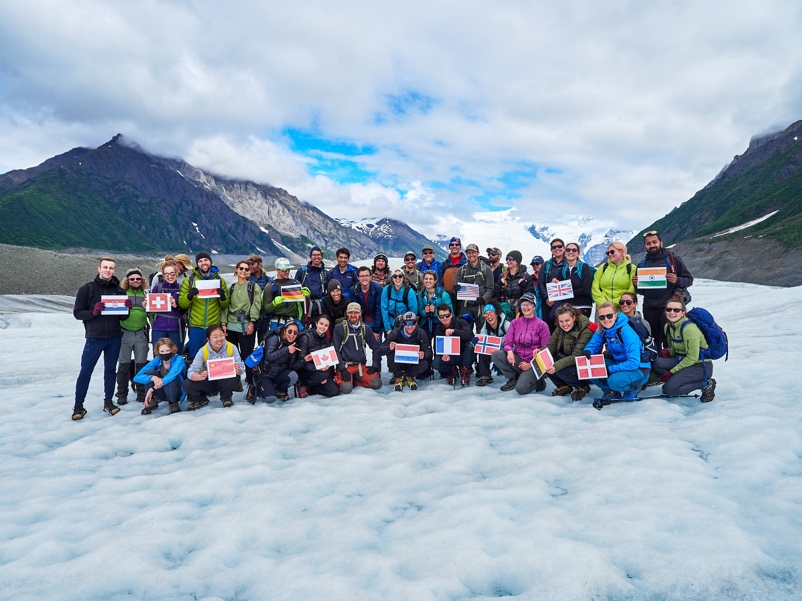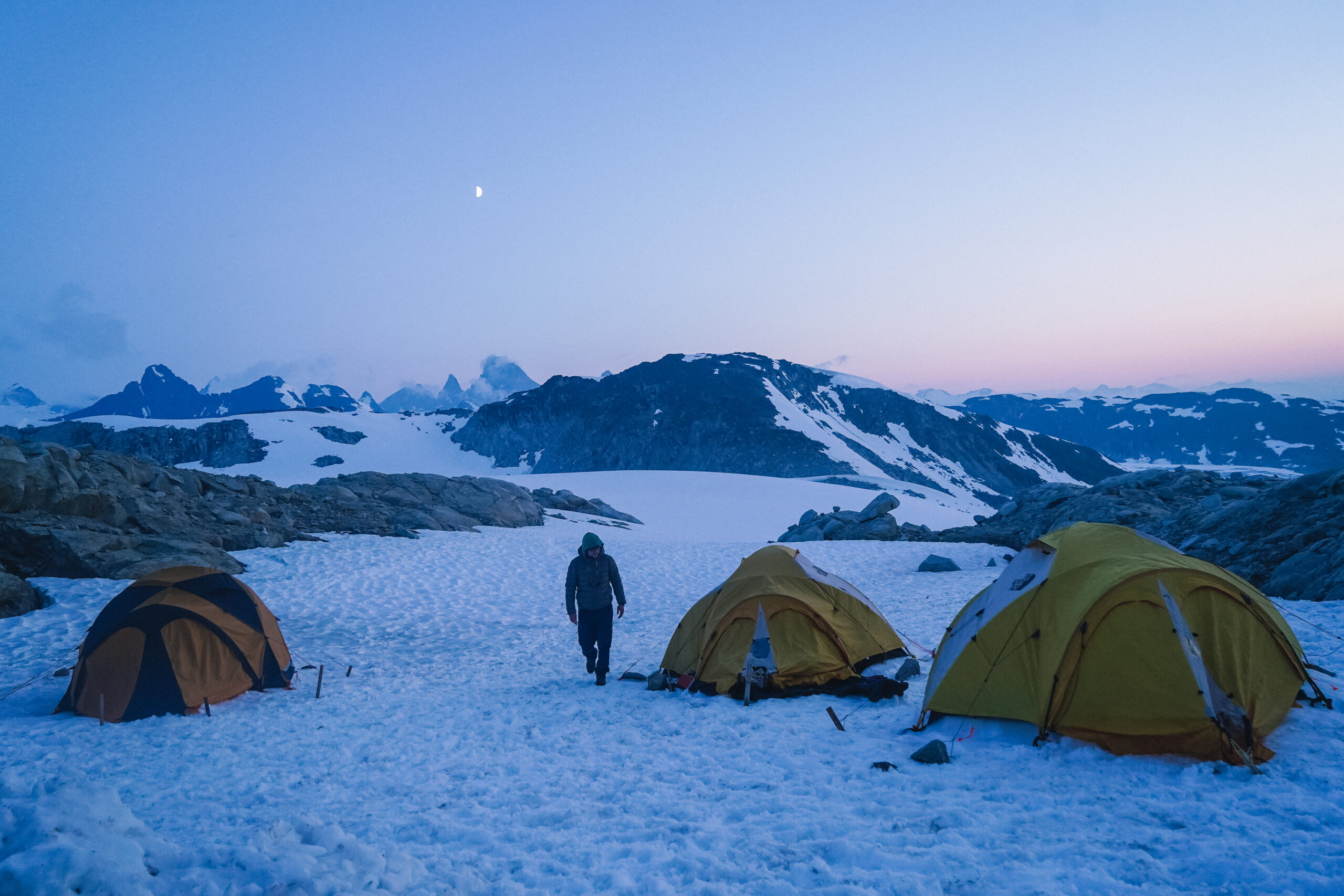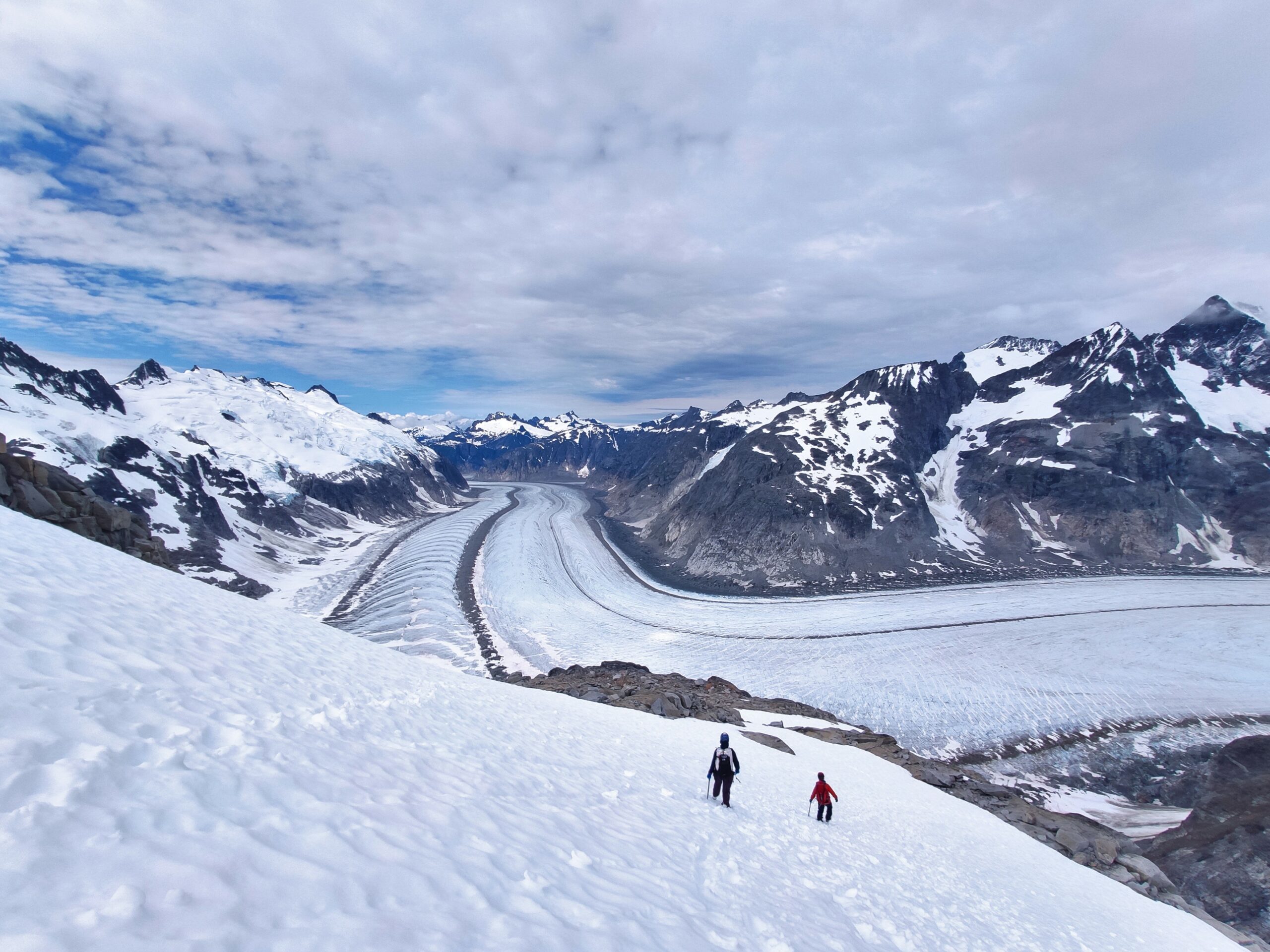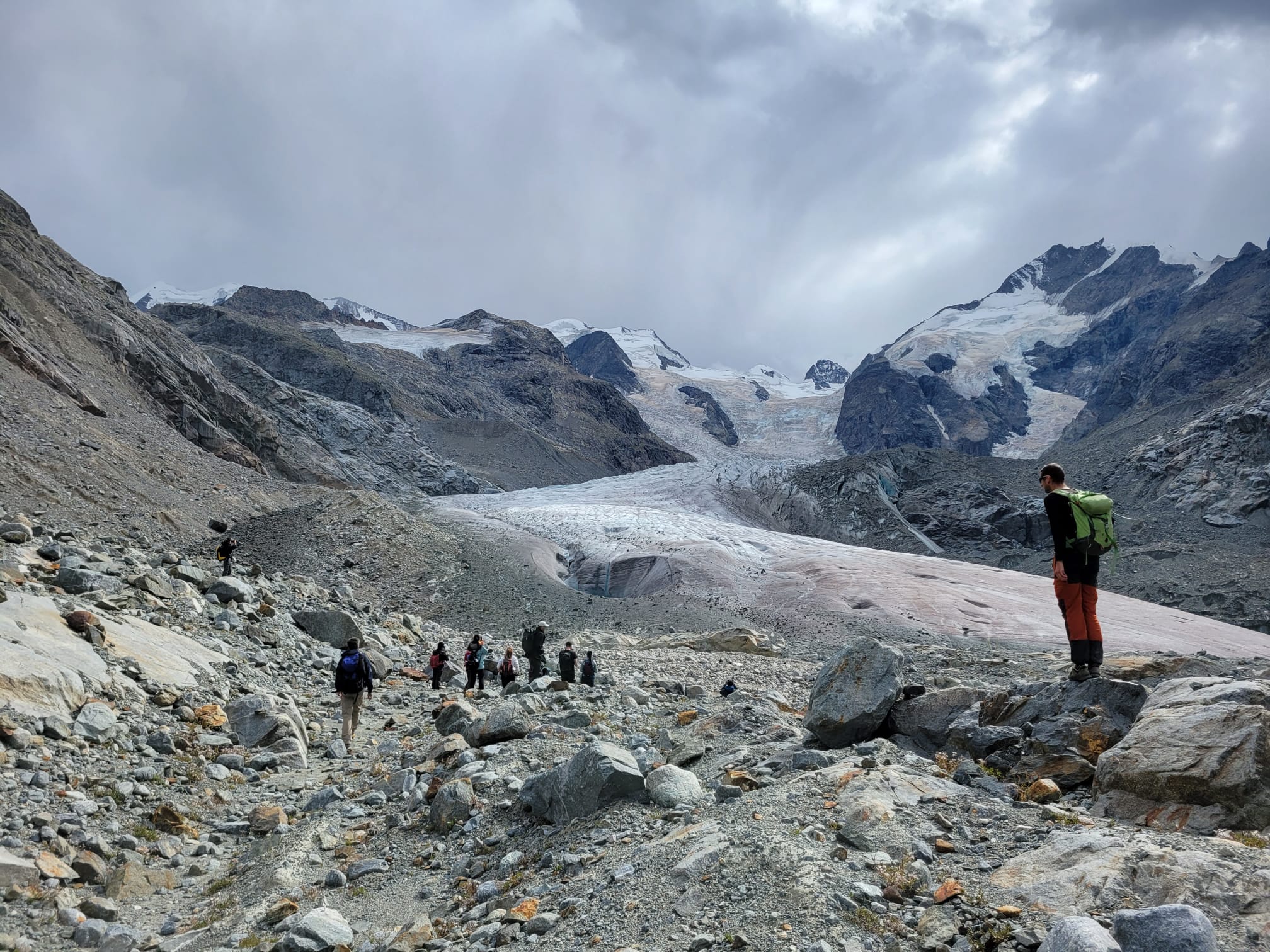SPI contributes to the cost related to the participation in field schools and training programmes in order to enable students and early-career scientists affiliated to a Swiss academic or research institution, to acquire specialised experience and knowledge.
The programmes must relate to topics and disciplines relevant for or associated with polar or remote high-altitude areas, or teach skills to be applied to research in such disciplines.
Participants should benefit from high-quality teaching, enhance their field experience and access new opportunities arising from an enlarged network of international contacts.
"[I] want to continue working in the polar regions in my further career and this course is very relevant for me to learn how to conduct safe field work in the Arctic and to know what I can do and where I need external help."
Janine Wetter, supported by a SPI grant for a course of safety management in the Arctic, at the University Centre in Svalbard, that took place in autumn 2021 (read her fieldnotes post here)
Images from summer school participants in 2022. Description from left to right:
- International Summer School in Glaciology 2022, Alaska, USA. © Johanna Klahold, all rights reserved
- Juneau Icefield Research Programme 2022, Alaska, USA. © Fabienne Meier, all rights reserved
- Juneau Icefield Research Programme 2022, Alaska, USA. © Andreas Henz, all rights reserved
- International Geochronology Summer School, Switzerland. © Giovanna Ceppi, all rights reserved
Eligible programmes
At the bottom of this page you can see a list of programmes for which participation has been finacially supported in the past. Participation in other programmes suggested by the applicant is also possible, their eligibility will be assessed on a case-to-case basis. In such a case, the following criteria would be applied:
- International reputation
- Thematic relevance
- Existence of a credible and competitive selection process of the participants
Some excellent overviews of available training opportunities can be found, for example, on the websites of APECS and ARCUS.
You can read about the experience of previous participants on this page.
How to benefit from SPI support?
Students should apply for the programme through the regular process set up by the organisers of the field schools or training programme. In parallel, they should inform the SPI Secretariat about their application and that they plan to apply for financial support if their application to the programme is successful. If their application is accepted by the organisers, students can apply for financial support using this template.
Please note that the application form needs to be signed by the students direct supervisor.
Eligible costs are subscription fees and travel costs (lodging, transport, visas, etc.) and the maximum granted amount per participant is CHF 1’500.-.
Please note that as of 2025, in order to have as many students as possible benefit from the available funding, the financial support can only be recieved one time per person.
The annual budget available for the field and summer school support is not unlimted. It is awarded to students that successfully apply to a competitive programme on a fist-come-first-serve basis. If you are planning to apply to to a programme with an application deadline late in the year, please inform us as early as possible.
For more information, contact:
Previously funded programmes
UNIS Detection of Emerging Pollutants in the Arctic, Svalbard - 2026, Antonia Kellner
UNIS Atmospheric Boundary Layer & Local Climate Processes, Svalbard - 2026, Valentin Künzler
UNIS Arctic Energy Meteorology, Svalbard, Norway - 2025, Anais Schneider
UNIS Arctic Terrestrial and Marine Climate History, Svalbard, Norway - 2025, Nicole Bitzer
UNIS Remote Sensing of the Cryosphere, Svalbard, Norway - 2025, Arianna Mezzoccato
UNIS Remote Sensing of the Cryosphere, Svalbard, Norway - 2025, Marco Karrer
UNIS Geological constraints on subsurface energy, Svalbard, Norway - 2025, Dario Maccioni
UNIS Remote Sensing of the Cryosphere, Svalbard, Norway - 2025, Rahel Ackermann
UNIS Arctic Energy Meteorology, Svalbard, Norway - 2025, Brandon van Schaik
Karthaus Summerschool, Italy - 2025, Sandra Wells Cembrano
UNIS Snow and Averlanche Dynamics, Svalbard, Norway - 2025, Jérôme Messmer
UNIS Arctic Tectonics and Volcanism, Svalbard, Norway - 2025, Anja Schuppisser
UNIS Snow and Averlanche Dynamics, Svalbard, Norway - 2025, Thomas Litchfield
UNIS Glaciology, Svalbard, Norway - 2025, Paula Johns
UNIS Glaciology, Svalbard, Norway - 2025, Mirjam Eberli
UNIS Sea Ice Mechanics and Physics, Svalbard, Norway - 2025, Michael Franzke
UNIS Glaciology, Svalbard, Norway - 2025, Isabella Brining
Patagonia Icefield Research Programme, Chile - 2024, Michaela Mühl
ESA Training Course on Arctic Methane and Permafrost, Svalbard, Norway - 2024, Kathrin Maier
UNIS Arctic Terrestrial and Marine Climate History, Svalbard, Norway - 2024, Sophie Spelsberg
UNIS Climate Change Biology, Svalbard, Norway - 2024, Jonathan Fassora
Innsbruck Summer School of Alpine Research, Austria - 2024, Sunni Kushwaha
GRISO Summer School 2024, Nuuk, Greenland - 2024, Marjolein Gevers
UNIS Arctic Microbiology, Svalbard, Norway - 2024, David Touchette
International Remote Sensing School, Italy - 2024, Leona Repnik
International Remote Sensing School, Italy - 2024, Gabriela Racz (read more)
UNIS Tectonic and Sedimentary History of Svalbard, Norway - 2024, Janos Benz
UNIS Air-Ice-Sea Interactions, Svalbard, Norway - 2024, Casimir Herold
UNIS Glaciology, Svalbard, Norway - 2024, Armin Dachauer
Patagonia Icefields Research Program, Chile - 2023, Anouk Volery
UNIS Arctic Quatenary Environment, Svalbard, Norway - 2023, Léa Rodari
Ice Core Analysis Techniques (ICAT) PhD school, Denmark - 2023, Michelle Worek
Urbino Summer School in Paleoclimatology, Italy - 2023, Michael Bollen
ACDC-GRISO Summer School, Greenland - 2023, Sonja Wahl
UNIS Freshwater Ecology of Arctic Lakes and Ponds - 2023, Saskia Läubli
International Geochronology Summer School, Switzerland - 2022, Giovanna Ceppi
International Summer School in Glaciology, Alaska, USA - 2022, Johanna Klahold (read more)
Juneau Icefield Research Programme, Alaska, USA - 2022, Andreas Henz
Juneau Icefield Research Programme, Alaska, USA - 2022, Fabienne Meier
Innsbruck Summerschool of Alpine Research, Austria - 2022, Bastien Ruols
UNIS Safety Management in the Arctic, Svalbard, Norway - 2021, Janine Wetter (read more)
Juneau Icefield Research Programme, Alaska, USA - 2019, Michaela Mühl
UNIS Permafrost, Svalbard, Norway - 2019, Sebastian Vivero
UNIS Glaciology, Svalbard, Norway - 2019, Johannes Landmann
Sentinel North PhD School, University of Laval, Canada - 2018, Carla Perez Mon
If you would like to learn more about the experiences of these participants, you can read about all of them on the SPI project database and in the blog posts by Johanna Klahold, Janine Wetter and Gabriela Raz.



